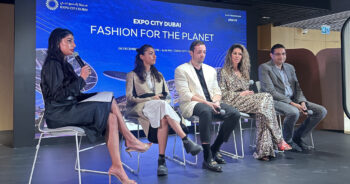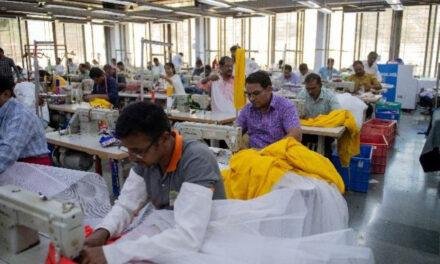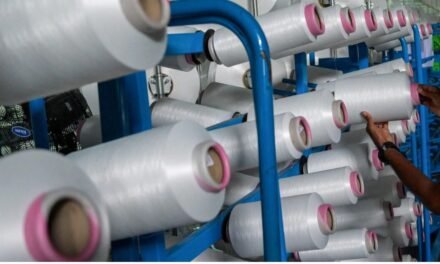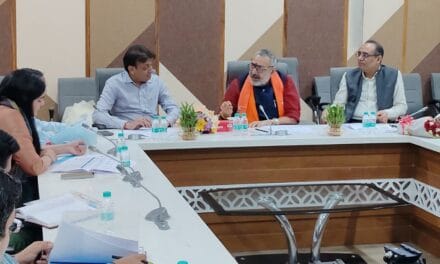 India’s biggest sustainability award – The Circular Design Challenge (CDC) presented by R|ElanTM, – a leading advocate for sustainable practice from Reliance Industries Limited (RIL), in association with the United Nations in India, made a significant impact at COP28 in Dubai. CDC, aligned with the UN’s mission for sustainable development, focuses on promoting circular design principles to address environmental concerns and foster innovation.
India’s biggest sustainability award – The Circular Design Challenge (CDC) presented by R|ElanTM, – a leading advocate for sustainable practice from Reliance Industries Limited (RIL), in association with the United Nations in India, made a significant impact at COP28 in Dubai. CDC, aligned with the UN’s mission for sustainable development, focuses on promoting circular design principles to address environmental concerns and foster innovation.
COP – Conference of the Parties, is the biggest annual conference on climate crisis, held by the United Nations. This year, the conference convened over 70,000 participants, including heads of state, government officials, industry leaders, academics, and representatives from across the world at Expo City Dubai between 30th November to 12th December 2023.The COP28 Presidency followed a two-week thematic program, geared towards real world solutions to close the emissions gaps in 2030 (UN Sustainable Development Goals) and build on the challenges and opportunities identified in a Global Stock take of progress on climate action.
A thought-provoking panel discussion titled ‘Fabrics of the Future’ took place at the Centre for Planet, Expo City Hall, which was open to delegates and the public. Ritesh Sharma, Brand and Retail Head for R|Elan™ Fabric 2.0, the next-generation fabric range made from specially engineered fibres and filaments from the product range of Reliance Industries Ltd, a visionary in sustainable fashion, joined the panel as an esteemed expert, offering insights into the role of circular design in shaping the future of fabrics. The panellists explored topics like nature-based solutions, fabrics of the future, putting people first and achieving circularity at scale and more.
The other participants included Ruchika Sachdeva, Creative Director and founder of BODICE; Manuel Arnaut, Editor in Chief, Vogue Arabia, Vogue Man Arabia, and Vogue Living Arabia; Amanda Navai, founder of the first local Dubai brand to be featured in Bloomingdales Dubai. The session was moderated by Rumana Nazim, founder of sustainable concept store, The Edit Dubai. The panel looked at how the industry can strive for sustainable and equitable practices across the entire fashion ecosystem.
Participating at the panel discussion Ritesh Sharma, Brand and Retail Head for R|Elan™ Fabric 2.0 said, “Sustainability does not start at the fabric stage, but it starts at the fibre stage, and we are trying to make an impact at that end of the textile value chain. Our technology recycles post-consumer PET Bottles that is socially compliant and provides end to end traceability. With our partnerships with large global brands, we are aiming to support their sustainability goals by providing fabrics that are made for the future.”
Shombi Sharp, UN Resident Coordinator in India commented, “The CDC is here at COP28 responding to the call for urgency by helping reduce the fashion industry’s climate impact. From sourcing sustainable materials to building in circularity, the CDC has encouraged many young designers to innovate in their design, production, and value chains. The UN in India is proud to join hands with the CDC and together transform the industry for a sustainable future.”
Additionally, CDC alumni Without, Thaely & Paiwand made a presentation and spoke about the problems they’re tackling and the impact, at the SDG7 Global South Pavilion. This platform provided an opportunity for emerging talent to showcase their innovative designs that align with the United Nations’ Sustainable Development Goal 7. The CDC alumni represent a diverse cohort of visionary entrepreneurs and designers committed to reshaping the fashion industry’s landscape and this session spotlighted their exemplary success stories.
The session delved into the journey of these trailblazers, illustrating their transformative impact on the fashion sector through circularity. Through engaging narratives and first-hand accounts, the panel explored the challenges faced, breakthrough moments, and the ripple effect of their success stories within the Indian fashion ecosystem. Attendees gained insights into the practical application of circular design principles and the tangible outcomes and impact on the Global Goals, achieved by CDC alumni, inspiring further innovation and collaboration within the industry.
Finally, a compelling installation by CDC alumni, Without, Thaely and Paiwand, was showcased at the Green Zone – Centre for Planet, Expo City Hall serving as a visual testament to the transformative power of the Circular Design Challenge. Titled ‘Fashion for Planet’, attendees witnessed first-hand the innovative solutions presented by participants committed to creating a more sustainable future. Circular Design Challenge is an exemplary initiative that aligns with the global commitment to sustainability. The event at COP28 served as a beacon for change, inspiring collaboration and innovative solutions towards a circular economy.
COP28 program highlighted the sectors and topics raised by stakeholders during consultations, including themes which need to be part of the COP agenda each year, and new, essential topics like health, trade and relief, recovery, and peace. The programming incorporated four cross-cutting themes that underpin effective, interconnected delivery: Technology & Innovation, Inclusion, Frontline Communities and Finance – to help rebuild trust, and empower communities to succeed in the future world.






















